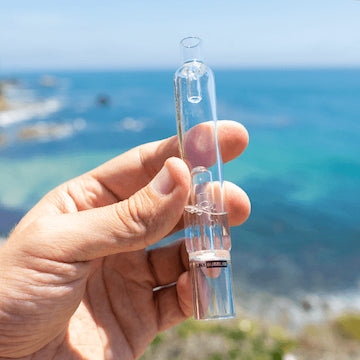Your Cart is Empty
FREE SHIPPING ON U.S. ORDERS OVER $60.
FREE SHIPPING ON U.S. ORDERS OVER $60.
FREE SHIPPING ON U.S. ORDERS OVER $60.
Shop Our Vaporizer Store
Browse through our vaporizer store for award winning portable vaporizers and dab pens. All of the Linx vaporizers are heavy metals tested and certified.
Don't forget to check out our full line of add-ons and accessories that tailor for your different vaping needs.
Get free shipping on US orders over $60.
Shop Our Vaporizer Store
Browse through our vaporizer store for award winning portable vaporizers and dab pens. All of the Linx vaporizers are heavy metals tested and certified.
Don't forget to check out our full line of add-ons and accessories that tailor for your different vaping needs.
Get free shipping on US orders over $60.
Shop Vape Accessories
Shop Vape Accessories
Shop Popular Add-ons
Shop Popular Add-ons
Shop Vape Accessories
Shop Vape Accessories
Shop Popular Add-ons

Eden Switch Dosing Capsule Set
Shop Popular Add-ons

Glass Bubbler

October 01, 2021 5 min read
The legalization of cannabis has come a long way over the years with quite a few states having already legalized recreational cannabis and over 20 states having made the leap of legalizing medical cannabis.
Many groups are responsible for such progress including pro-cannabis advocates and long-time and new cannabis users, as well as those who have taken to the vaping lifestyle.
What most want to know is how this projection will move along with 2018 drawing near. To answer this question, let’s take a comprehensive look at the current state of cannabis in the states (and beyond) and what can be done to further its progression.

Photo Credit: The Georgia CARE Project
As of 2017, there are currently 29 states in the U.S. who have legalized the use of medicinal cannabis with the newest being West Virginia (2017) and the first being California back in 1996.
On the recreational side, there are 9 states that have legalized recreational Cannabis which include California, Colorado, Massachusetts, and Oregon.
For now, there isn’t any definitive confirmation on whether a state is going to legalize recreational cannabis in 2018.
Based on the consensus from state governments, there are some predictions on which states could potentially be next in line to take the plunge:
As of now, most of the legalization efforts have been made exclusively through passed ballot measures, but based on trends in state politics and culture, predictions are made on who will be next in line.
Current Federal Views on Cannabis

As of right now, many state governments are on board and committed to making the legalization of recreational cannabis a reality.
However, the federal government, Attorney General Jeff Sessions and members of the Trump Administration in particular, have come under fire for their anti-cannabis views.
Jeff Sessions has been going toe-to-toe with many members of Congress for his opinions that cannabis is linked to violent crimes and even going as far as to compare Cannabis to heroin or cocaine.
As well, it would seem that the Trump administration is neglecting to acknowledge that cannabis can be a solution in the nation’s current opioid epidemic.
In November, his commission released a final report addressing concerns regarding this critical issue and while they appeared to address recommendations regarding medical professional training when it comes to prescribing prescription painkillers, they neglected to even mention cannabis’s role in pain management.
Even worse, they attempted to cite a 2017 study that stated, “marijuana use led to a 2 1/2 times greater chance that the marijuana user would become an opioid user and abuser” and that there was lack of research to test such aspects like potency and abuse potential for Cannabis.
However, it can be quite difficult for scientists to fully test the uses of Cannabis when it is classified as a Schedule 1 substance, making for a lackluster argument on the part of the Trump administration.
However, there is still some hope within our federal government. Some senators still support the pro-cannabis movement and are doing the best that they can to advocate for the cause. Some notable pro-cannabis senators include:
When it comes to the political side of cannabis use, people often believe that the terms decriminalization and legalization can be used interchangeably.
However, there is a clear difference between the two and the role that each play for the cannabis user.
Decriminalization is essentially the downgrade of criminal penalties regarding recreational cannabis use despite the fact that it is still considered illegal.
Under decriminalization, law enforcement is required to “look the other way” if someone is in possession of small amounts of recreational cannabis. Sale and manufacture of personal cannabis remains unregulated within the state and if a person is caught using recreational cannabis, they would face civil penalties rather than criminal ones.
Recently this year, an advocate for cannabis, Al Sharpton, spoke at the Cannabis World Congress Conference.
He expressed his support for cannabis decriminalization and his views of the potential for civil rights issue surrounding the subject of cannabis.
Legalization refers to the abolishment of laws that are in place making possession and use of recreational cannabis illegal.
Under state legalization, the state is now allowed to tax and regulate the sale and use of Cannabis. This move towards state legalization will grow state revenue by tens of millions of dollars each year.
Furthermore the court system wouldn’t have to deal with putting away thousands of offenders for simple possession of small amounts of recreational cannabis.

Despite objections from the federal government, state governments still have the chance to come out on top and make the decision to legalize recreational cannabis in their states.
This ultimately comes down to the people by voting for this when election time comes around.
However, there is no need to wait for the ballots, instead there are some things that can be done including speaking up about it with your local and state governments and continuing to show your support.
Progress hasn’t halted as of yet and it can be inferred that the state governments will not bow down either as Congress has the final decision on these matters.
One organization that should be mentioned regarding the action of speaking up on the legalization of cannabis is called NORML.
Their overall mission is to serve as an advocate for those who support cannabis legalization and to push public opinion on this subject.
NORML directly lobbies with federal and state regulators in order to push reform on cannabis laws and to act as an educational resource that individuals can consult in an effort to offset the progression of anti-cannabis propaganda and properly educate others on the positive aspects of cannabis use.
By supporting your state’s NORML chapter, you can stay in the loop on the progress of cannabis state laws and by voicing your opinion, you can move the legalization of recreational cannabis that much closer to reality.
Written by Marisa Timko. She is the content manager at TheVape.Guide - a leading site for all things vaping. TheVape.Guide is the authority for device and product reviews for dry herb, concentrate, and e-liquid vaping. They test, review, and rate vaporizers, e-liquids, e-nails, grinders, trays, and more. They also specialized in product comparisons, best lists and and coupons for the leading vaporizer stores and manufacturers.
Comments will be approved before showing up.